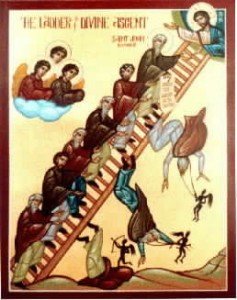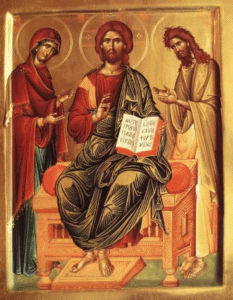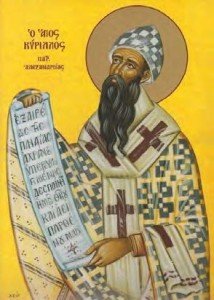![]() As I suggested in the last issue of this article, to acquire the mind of Christ we must first grow in our understanding of how He prayed. I then suggested that Jesus saw God as ABBA – a Father, however, Who is in heaven.
As I suggested in the last issue of this article, to acquire the mind of Christ we must first grow in our understanding of how He prayed. I then suggested that Jesus saw God as ABBA – a Father, however, Who is in heaven.
In addition to calling God ABBA, Jesus added the pronoun “OUR” to ABBA. This clearly indicates that Jesus saw God as not only His own ABBA but the ABBA of all humankind. So Jesus taught us that God, like our human fathers, is the source of our life. In fact, God has chosen to infuse His Life into us through the means of our earthly fathers.
St. Cyprian of Carthage, a third century bishop wrote, “My dear friends, the Lord’s Prayer contains many great mysteries of our faith. In these few words there is great spiritual strength, for this summary of divine teaching contains all of our prayers and petitions.”
In Jesus’ prayer he then adds this: hallowed be thy name. I suspect millions of Christians say this prayer every day and probably don’t even realize what hallowed means. We say the prayer by rote. The word hallowed has several meanings: honored as holy; and greatly revered and respected. In this first petition, we ask that God’s name be sanctified. Objectively speaking, God’s name is already holy, but the prayer is asking that God make his name holy to all people through His works and deeds.
This immediately raises this question: To which name is Jesus referring? Yahweh, which means I AM, or ABBA, which means Father. As a Jewish man, He would probably not have uttered the name Yahweh, even though it does appear in Genesis. It was and is a Jewish practice to only name God by circumlocution, speaking His attributes. So, probably, Jesus
Encouraging His followers, and therefore us, to think of God truly as Father, someone from our earthly experience, with whom we can have a relationship. The English word God and Hebrew Yahweh truly seem to make God much more abstract – not someone we can actually have a loving relationship with. Through this prayer Jesus encourages us to think of God not as an abstract deity but, rather, as someone with whom we can have a loving relationship – of someone Who also loves us and will do all in His power to help us grow and keep us safe.
I hope this will encourage you to begin thinking of this pray in a different way.





